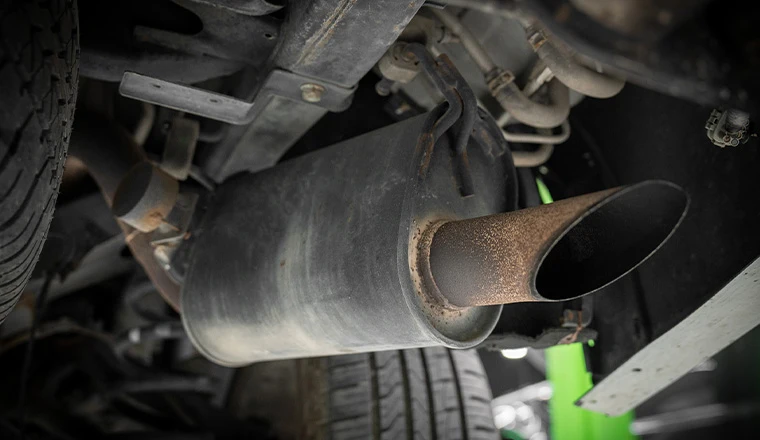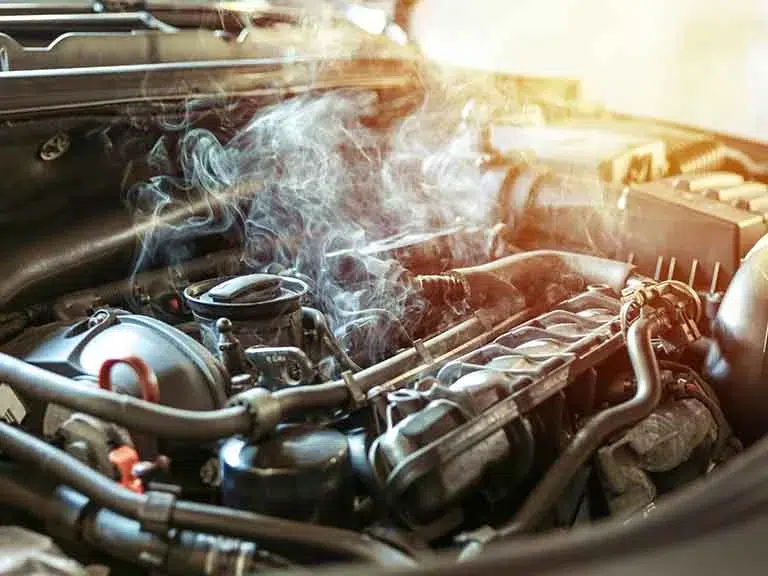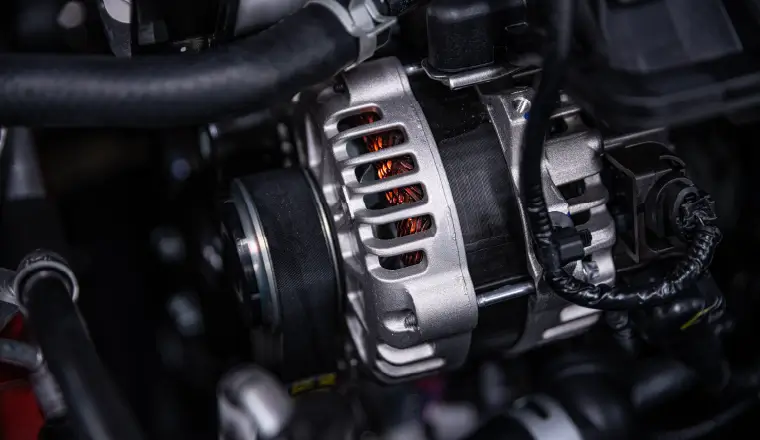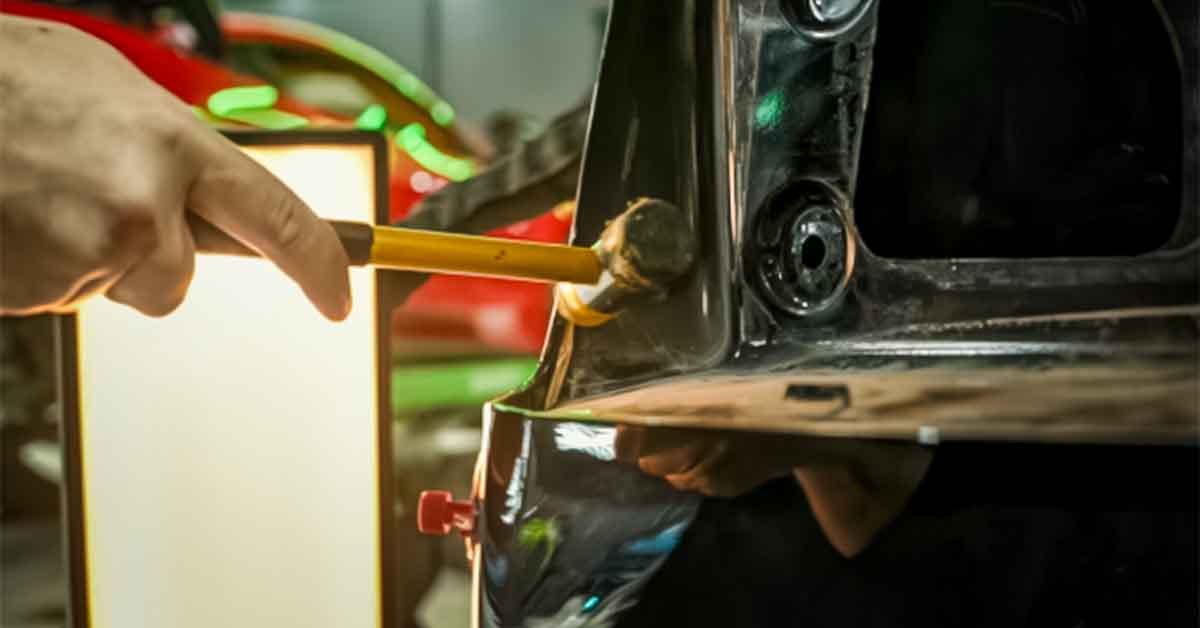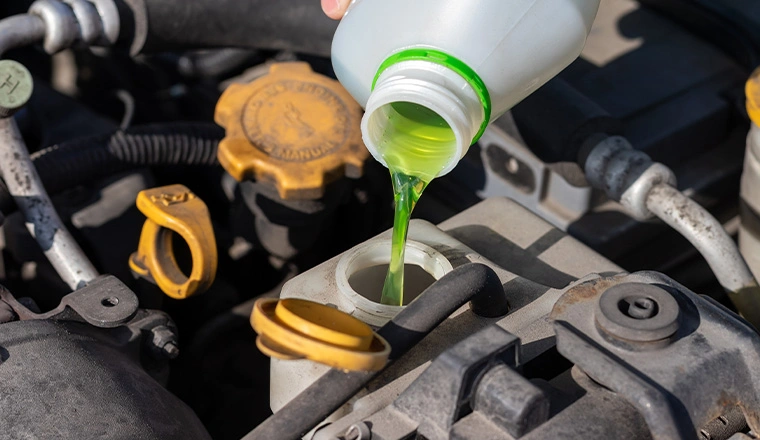
Can You Drive a Car Without Coolant?

No, you should never drive a car without coolant. Coolant is essential for regulating your engine’s temperature, preventing overheating, and avoiding severe engine damage. Without it, your engine can overheat quickly, leading to costly repairs or even complete engine failure. If your coolant is low or missing, stop driving immediately and seek professional assistance.
What is Coolant and What Does It Do?
Coolant, often a mixture of antifreeze and water, is responsible for circulating through the engine, absorbing heat, and transferring it to the radiator for cooling. It also protects the engine from freezing in cold temperatures and lubricates various engine components. Without coolant, your engine has no means of staying within safe operating temperatures, and damage can occur rapidly.
What Happens When You Drive Without Coolant?
Without coolant, your engine is in serious jeopardy. Here’s what could happen:
1. Engine Overheating
The first thing you’ll likely notice is the rising temperature gauge or the engine overheating warning light on your dashboard. Coolant plays a critical role in preventing your engine from reaching dangerous temperatures. If the coolant level drops too low, the engine will start to overheat, leading to severe damage.
2. Automatic Engine Shutdown
Modern vehicles are often equipped with an automatic engine shut-off feature. When the engine temperature exceeds safe limits, the vehicle may automatically cut off to protect the engine from further damage. However, not all vehicles have this feature. If your car doesn’t, continuing to drive without coolant can lead to irreparable damage.
3. Engine Damage
If you ignore the warnings and keep driving, the engine components will overheat. This can lead to:
- Warped Cylinder Heads
- Damaged Gaskets
- Cracked Engine Block
- Broken Piston Rings
These are expensive issues to repair and could result in the need for a complete engine replacement.
4. Leaks and Damage to Engine Components
Without coolant, the engine’s metal parts expand due to high temperatures, and gaskets, seals, and hoses may crack. This could lead to coolant leaks, further exacerbating the issue.
How Long Can You Drive Without Coolant?
The short answer is: not long. If you notice the temperature gauge rising or see a warning light on your dashboard, it’s time to stop. In most modern vehicles, an automatic engine shut-off will kick in if the engine becomes too hot. However, in older cars or those without this feature, continuing to drive without coolant will quickly lead to engine failure.
If you find yourself in a situation where your coolant is low or empty, it’s best to pull over and call for assistance. Attempting to drive your car any further could cause irreparable damage.
Signs That Your Coolant is Low or Missing
If you suspect your coolant is low, here are some warning signs to watch for:
- High Temperature Gauge: If the gauge moves towards the red zone, this indicates that the engine is getting too hot.
- Coolant Warning Light: A red symbol resembling a thermometer will light up on your dashboard, indicating the coolant temperature is too high.
- Sweet Smell: Coolant has a distinct, sweet odor. If you smell this inside the cabin or around the engine bay, it could mean that coolant is leaking.
- Steam or Smoke: If you notice steam coming from under the hood or around the engine, the coolant has likely evaporated due to extreme heat.
- A/C Blowing Hot Air: The air conditioning may start blowing hot air, as the cooling system depends on the engine’s temperature regulation.
What Should You Do if You Run Out of Coolant?
If you notice low coolant and are stuck without a nearby repair shop, here are some steps you can take:
- Pull Over Immediately: Stop the car to avoid further engine damage.
- Wait for the Engine to Cool Down: Allow the engine to cool for a few minutes. Opening the hood can help the cooling process, but be cautious as it may be extremely hot.
- Add Water as a Temporary Solution: If you don’t have coolant on hand, adding water might help cool the engine temporarily. However, this should only be a stop-gap solution.
- Get Your Car to a Garage: Once the engine cools down, head to a professional mechanic who can assess the situation and refill your coolant system.
How Modern Cars Handle Low Coolant and Overheating
Modern cars come equipped with advanced features that help prevent overheating. These systems can include an automatic engine shut-off and safe “limp-home” modes. These features may allow you to drive the car a little further, but only for a short time before the engine sustains damage.
Conclusion: Never Drive Without Coolant
In conclusion, driving without coolant is never advisable. The coolant system is essential to keeping your engine running at optimal temperatures. If your coolant level is low, it’s crucial to address the issue immediately to avoid costly engine repairs.
At Exotic Auto Service – CAR REPAIR & SERVICE, we recommend regular coolant checks as part of your car’s routine maintenance. If you suspect a coolant leak or have trouble with your cooling system, don’t hesitate to reach out. Our expert team in Abu Dhabi is here to help ensure your vehicle runs smoothly and remains in top condition.
Read More About:
1: How to Know If You Have an Exhaust Leak?
Our Services
Frequently Asked Questions
Can low coolant cause my car to stall?
Yes, low coolant can cause your engine to overheat, which may lead to your car stalling. If the engine temperature rises too high, it can cause parts to seize or the car’s engine to shut down to prevent damage.
How often should I check my coolant level?
It’s recommended to check your coolant level at least once every few months or before long trips. You should also check it if you notice any warning signs like a high-temperature gauge or a coolant light on the dashboard.
Can I mix different types of coolant?
It is generally not recommended to mix different types or brands of coolant, as they may have different chemical compositions that could cause a reaction. Always use the coolant recommended by your car’s manufacturer.
Is it safe to drive my car if I notice a small coolant leak?
If you notice a small coolant leak, it’s best to address the issue immediately, as even small leaks can lead to bigger problems. Continuing to drive could result in your engine overheating and causing permanent damage.
What should I do if I accidentally add too much coolant?
If you’ve added too much coolant, it’s important to drain the excess. Too much coolant can affect your car’s performance, especially in extreme temperatures. If unsure, it’s best to consult a mechanic for help.

